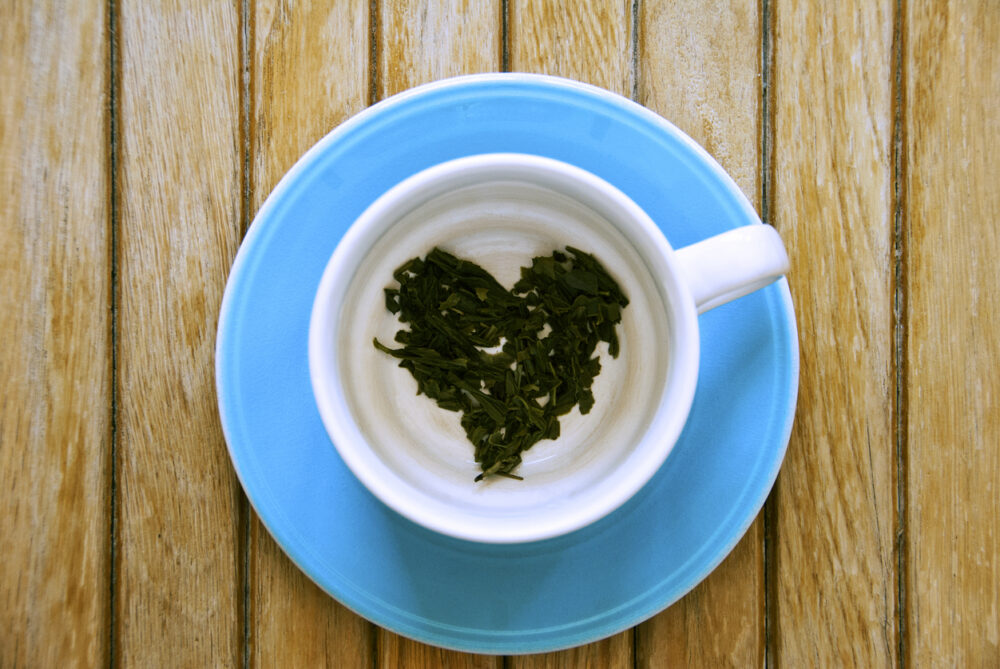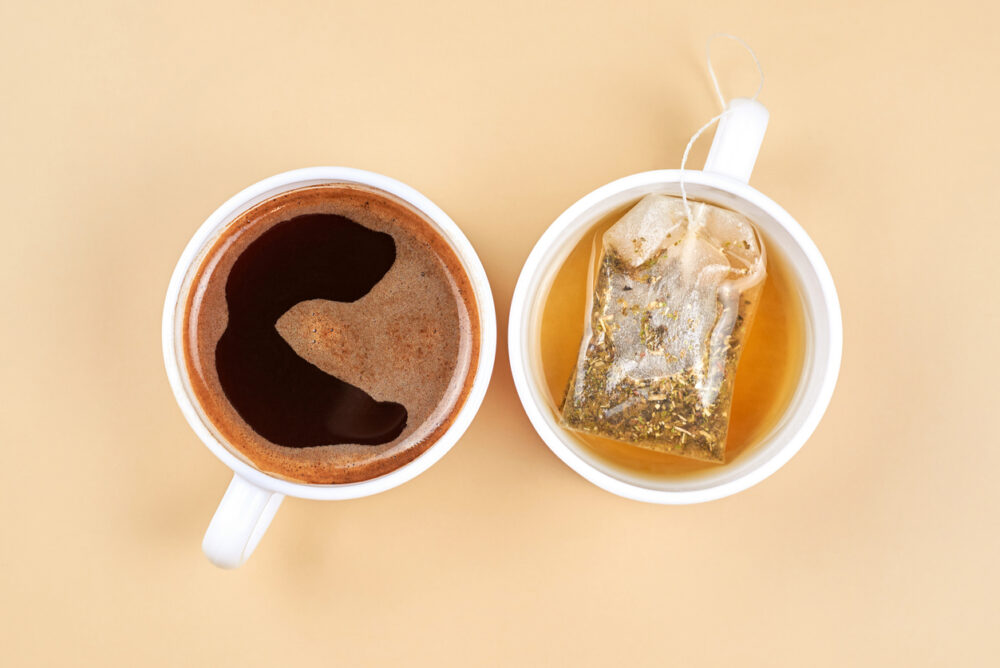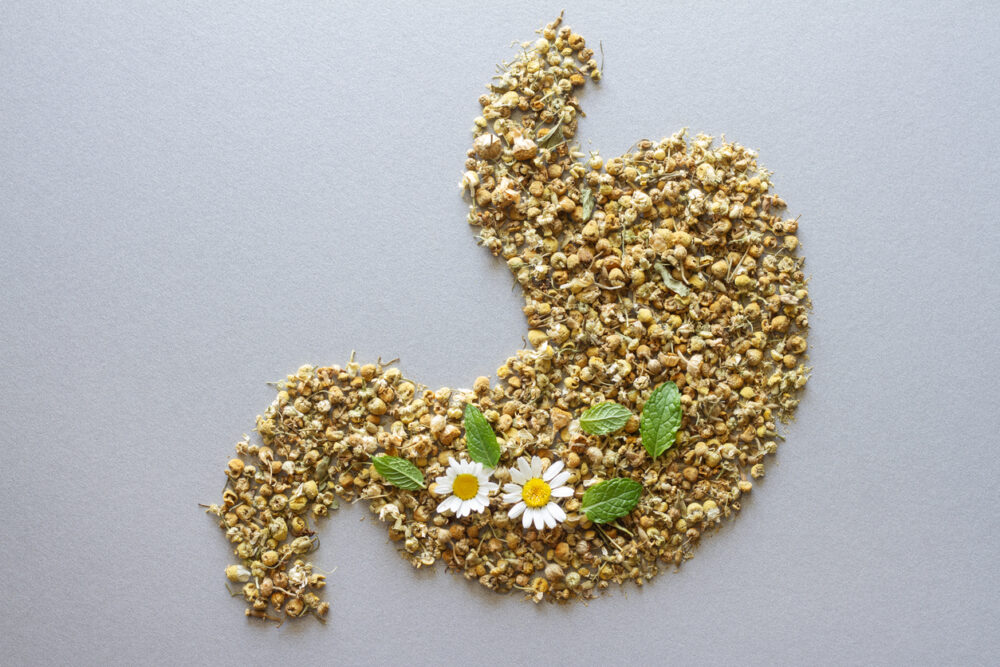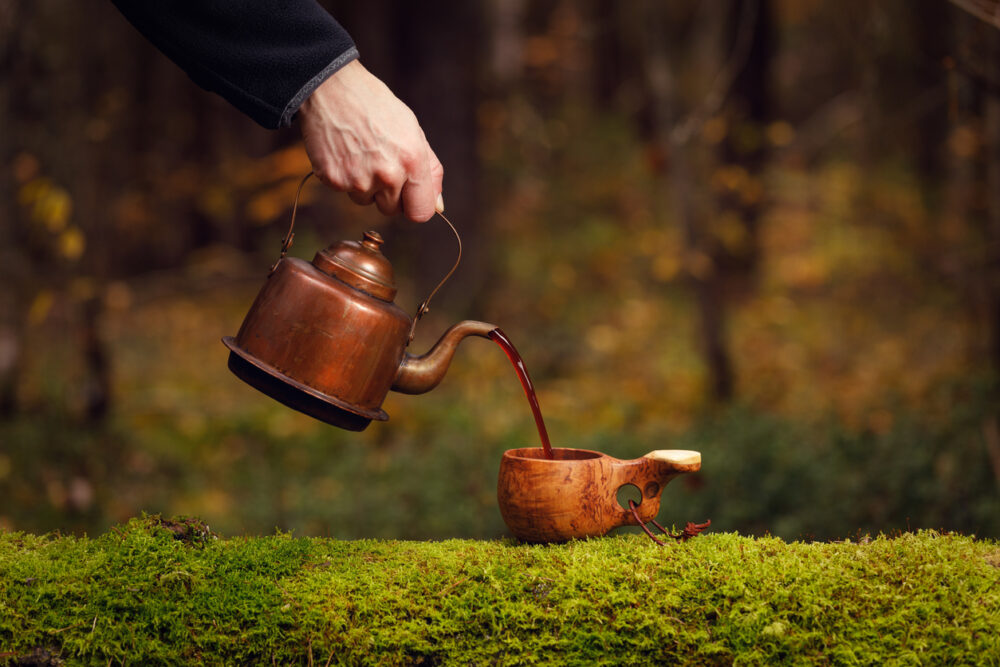The Ancient Leaf That’s Revolutionizing Modern Wellness

Most wellness trends disappear faster than funding for environmental programs. Yet tea – that unassuming little leaf likely gathering dust in your pantry – has been quietly changing lives for thousands of years. While coffee demands attention with its bold personality, tea maintains a zen-like confidence, never needing to broadcast its impressive health credentials.
Consider the bonus: tea delivers all these body-boosting benefits while maintaining a minimal environmental footprint. In an era where most “health” products arrive wrapped in excessive plastic, tea stands out as something genuinely good for both you and the planet. From antioxidant powerhouses to stress-busting compounds, this simple leaf offers more benefits than beverages concocted by teams of scientists and marketing executives. Ancient yet timeless, this brew deserves a permanent spot in your daily routine, with impressive benefits for both your health and the environment.
1. Antioxidants become your cellular bodyguards with each steamy sip.

Those cells of yours are under constant attack from free radicals that cause everything from wrinkles to major health problems. Tea contains powerful antioxidants that neutralize these molecular troublemakers before they can damage your DNA. A study published in the Pharmaceutical Chemistry Journal by Mengdi Shang et al. demonstrated that tea polyphenols effectively protect against DNA damage induced by free radicals. Unlike overpriced supplements in fancy packaging, tea actually works without emptying your wallet.
Working together rather than separately, tea’s compounds offer a comprehensive approach to cellular protection. While laboratory-created antioxidant formulations target limited pathways, tea deploys multiple beneficial compounds simultaneously.
Studies show these benefits continue for hours after your last sip – long after you’ve forgotten where you set down your mug. All this cellular protection costs less than your friend’s daily “I deserve this” latte habit.
2. Your heart performs better with leaf water as its personal trainer.

Hardworking hearts benefit significantly from tea. The flavonoids help maintain arterial health and reduce inflammation, improving cardiovascular function. Black and green tea varieties actively improve cholesterol profiles, decreasing problematic LDL while preserving beneficial HDL levels, according to a study in the National Library of Medicine by Louise Hartley and others.
Blood pressure management improves through compounds like theanine and catechins that regulate blood vessel function. While energy drinks and sodas stress your cardiovascular system, tea creates a calming effect that allows optimal heart function. The contrast is clear: tea provides heart benefits without the dramatic crashes of less beneficial beverages. Your future cardiac health will appreciate you putting the kettle on.
3. Productivity sustains itself without demanding another fix by noon.

Coffee people, we see you twitching over there. Your caffeine delivery system hits hard and then abandons you quickly. Meanwhile, tea offers a gentler approach – enough energy to complete your to-do list without the mid-afternoon crash that has you contemplating a desk nap.
Inside each cup, L-theanine serves as tea’s secret weapon – an amino acid that moderates caffeine’s effects. Per an article by Dr. Shavonne Morrison at EatingWell, L-theanine works synergistically with caffeine to promote calm alertness and enhance focus and cognitive function.
For anyone exhausted by the coffee cycle (productivity spike followed by inevitable crash), tea offers a steadier experience that preserves your sanity. Plus, you’ll never need to apologize for texts sent during a tea-fueled productivity session.
4. Three minutes of steeping replaces your expensive mindfulness subscription.

In a world where your phone buzzes like an angry hornet’s nest, brewing tea enforces a precious pause. While Silicon Valley peddles mindfulness apps at premium rates, tea has been mandating moments of stillness since before electricity existed. Those steeping minutes aren’t wasted time—they’re tea’s built-in mindfulness feature, no updates required.
The sensory ritual—watching leaves unfurl, inhaling botanical aromatherapy—anchors you to the present without actor-voiced guided meditations. Ancient cultures formalized these benefits into ceremonies, but even your hasty office cup represents rebellion against the cult of constant productivity. While coworkers mindlessly scroll through rage-inducing headlines during “breaks,” your tea ritual gives your brain the processing time neuroscience confirms it needs. Tea drinkers collect these mental reset moments while others wonder why they can’t concentrate after lunch.
5. Your metabolism perks up when you choose this over coffee.

Your dentist’s waiting room lacks posters about tea’s oral health powers. Research shows tea compounds fight bacteria causing cavities and gum disease, essentially blacklisting Streptococcus mutans before it can attack your teeth.
Tea naturally contains fluoride—providing cavity protection without political controversy. While dark teas might cause surface staining, this cosmetic effect is minor compared to actual damage from acidic drinks that treat enamel like unwanted tenants. Regular tea drinking has even been linked to lower oral cancer risk. If staining concerns you, green and white teas offer similar protection with less discoloration—something your dentist knows but rarely mentions while calculating payments on that fancy new office renovation and annual ski trip to the Alps.
6. Flavor complexity rivals wine without the regrettable 2AM texts.

Most people’s tea experience is limited to whatever sad tea bags have been abandoned in the office kitchen since the Obama administration. But the actual tea world offers flavor complexity that would make wine enthusiasts choke on their overpriced Cabernet. From the grassy brightness of Japanese sencha to the smoky depths of lapsang souchong (literally tasting like someone liquified a campfire in the best possible way) to the honeyed complexity of Taiwanese oolongs, tea delivers sophisticated flavor experiences without the regrettable texts or morning headache.
Across the flavor spectrum, tea makes an ideal replacement for problematic indulgences. Evening cocktail fans might enjoy a robust aged pu-erh, while dessert lovers can explore naturally sweet options without blood sugar spikes.
Unlike artificially flavored beverages with manufactured intensity, quality tea develops your palate’s appreciation for subtlety. Taste perception expands beyond one-dimensional sweetness, introducing nuance to your daily drinking ritual.
7. Each sip connects you to thriving ecosystems half a world away.

Looking beyond taste, beverage choices have significant environmental consequences. Traditional tea gardens, especially those growing under forest canopy, support remarkable biodiversity compared to conventional coffee plantations. The difference is substantial: thriving ecosystems versus depleted agricultural land.
In Yunnan, China, ancient tea trees thrive within forest systems, creating wildlife habitats and effective carbon sequestration. Even conventional tea plantations, when managed sustainably, maintain permanent plant cover that prevents soil erosion. Many producers now embrace bird-friendly certification programs that enhance conservation. By choosing loose-leaf teas from responsible producers, you’re supporting landscapes that function as mini nature preserves rather than extraction zones.
8. Dental bills might shrink when you switch from coffee to tea.

Your dentist’s waiting room probably doesn’t feature posters promoting tea’s impressive oral health powers. Research shows compounds in tea actively fight the bacteria responsible for cavities and gum disease, essentially putting Streptococcus mutans (the main cavity villain) on a no-fly list before it can land on your teeth.
Tea leaves naturally contain fluoride—providing cavity protection without stepping into political debates that ruin Thanksgiving dinner. While dark teas might contribute to surface staining over time, this purely cosmetic effect pales compared to the actual damage caused by acidic sodas and sports drinks that treat your enamel like expendable real estate.
Regular tea drinking has even been linked to lower oral cancer risk. For the staining-concerned, green and white teas offer similar protection with less discoloration—a fact your dentist knows but rarely mentions while calculating payments on that new office renovation.
9. Cold season becomes less threatening with tea as your ally.

Powerful immunity support comes from the catechins in tea, particularly in green varieties, which demonstrate direct antimicrobial properties against various pathogens, inhibiting microbes before they can establish infections.
What makes tea special is how it balances immune function rather than blindly stimulating it (looking at you, sketchy “immune booster” supplements that can actually worsen autoimmune conditions). Tea polyphenols help maintain appropriate defensive measures without going overboard – creating an immune system that’s alert but not paranoid, capable of responding to genuine threats without overreacting to every pollen particle like it’s an invading army. And all this immune support comes from a beverage that costs pennies per cup rather than those expensive supplements promising miracle cures while emptying your wallet faster than a teen with your credit card at the mall.
10. Tea gives your neurons exactly what they need to work efficiently.

Brains receive notable benefits from regular tea consumption. Population studies consistently show lower rates of cognitive decline among habitual tea drinkers, with research suggesting significant reduction in neurodegenerative disease risk – better results than most brain-training applications.
Crossing the blood-brain barrier, L-theanine influences neurotransmitter activity to improve both focus and stress resilience. It boosts production of GABA, the brain’s primary inhibitory compound that prevents neural overstimulation. For aging brains, tea compounds help reduce accumulation of proteins linked to cognitive decline. Among all dietary approaches for cognitive health, tea offers one of the most evidence-backed options – a simple brain maintenance routine with substantial benefits.
11. Digestive systems run smoother when tea becomes your after-meal ritual.

After a heavy meal, nothing soothes your insides quite like a well-timed cup of tea. Many varieties, especially oolong and pu-erh, contain compounds that enhance digestive enzyme activity – essentially giving your stomach extra tools to process that holiday feast without the usual regrets. This explains why cultures worldwide traditionally end rich meals with tea rather than more dessert.
Beyond basic digestion, tea delivers impressive benefits for your gut microbiome – that internal ecosystem now linked to everything from immunity to mental health. The polyphenols in tea act as premium food for beneficial bacteria while discouraging the troublemakers from setting up shop. For specific digestive complaints, herbal teas like peppermint and ginger provide targeted relief without the pharmaceutical side effects that get rushed through in commercial voiceovers while actors unconvincingly frolic through meadows.
12. Drinking tea regularly helps prevent bone loss as you age.

Forget expensive bone supplements—the humble cup in your morning routine does more for your skeleton. Studies consistently show people who drink tea regularly maintain stronger bones, especially older women who normally face higher fracture risks. The natural compounds in tea work double-duty: they encourage cells that build bone while telling the bone-breaking cells to take a vacation.
While milk commercials would have you believe dairy alone builds strong bones (thanks to decades of “got milk?” marketing), tea quietly delivers impressive skeletal support without the environmental baggage of dairy production. For maximum bone benefit, consider the best of both worlds—adding a splash of milk to your tea helps your body absorb those bone-strengthening compounds more effectively. When you’re still standing tall and moving freely in your eighties, that daily tea habit deserves part of the credit for keeping your frame strong and mobile long after others have started to shrink.
13. Mother Nature secretly high-fives you for choosing tea every morning.

Tea cultivation offers major environmental wins compared to other drinks. It uses half the water of coffee, much less than dairy milk, and far less than supposedly “eco-friendly” almond milk. Tea plants live for decades without yearly tilling, which locks away carbon and keeps soil healthy.
Making tea is simple – just withering, rolling, oxidizing, and drying leaves. This process needs little energy compared to manufacturing other drinks. You can reduce waste even more by choosing loose-leaf tea or compostable tea bags instead of plastic-wrapped options. By making tea your go-to drink, you’re supporting one of the most sustainable beverages available – good for both your health and the planet’s future.
